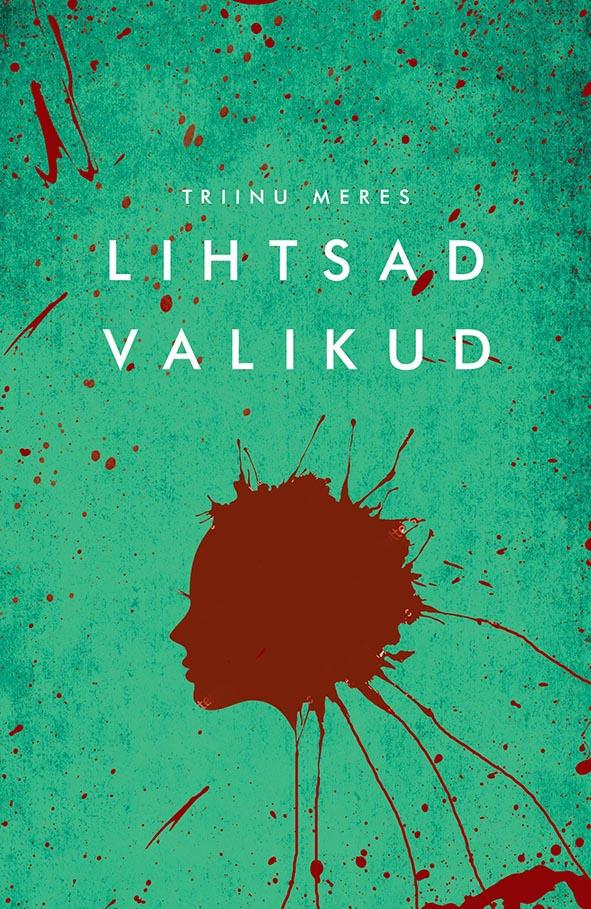Triinu Meres, Lihtsad valikud (Simple Choices)
Varrak, 2017. 272 pp
and
Kuningate tagasitulek (The Return of the Kings)
Orpheuse Raamatukogu 33. Fantaasia, 2018. 395 pp
Triinu Meres has rocketed into the starry sky of Estonian literature over a very brief period of time. Just last year, her debut novel Simple Choices shared second and third place with Eva Koff’s The Blue Hill in the Estonian Writers’ Union’s Novel Competition, and this summer, it won Estonia’s Stalker Award for Science Fiction.
As if that weren’t enough, Meres released her second work soon after: a thick post-apocalyptic dystopian novel titled The Return of the Kings.
But going back to the beginning, Simple Choices is essentially a detective sci-fi work that revolves around three women with very different motives and ambitions. Each of them offers three possible perspectives and three possible answers to the ethical dilemmas the book poses. In addition to ethical questions and contradictions between the main characters’ consciences and obligations, the novel has the kind of “world-building” that usually piques sci-fi fans’ interest.
Namely, the author has succeeded in creating a society founded on moral and interpersonal conventions unlike those on Earth. Even so, the differences aren’t all that great and one can’t rule out the possibility that we, with our level of technological advancement and increasing deficiency of resources, are on a path towards Meres’ society. At the same time, one has a budding sense of peculiarity when reading about human relationships often treated as utilitarian by the partners involved, drawing a clear distinction between the physical and emotional aspects. It is a strange but pragmatic approach, seeing as how the characters inhabiting that world live behind closed doors on a planet with a hostile natural environment, and keep strict track of their available resources.
We encounter something similar in Meres’ The Return of the Kings. Although it belongs to today’s over-exploited genre of post-apocalyptic dystopia, the sense of unfamiliarity we experience in regard to the world revealed to us plays a very important role.
“Hostile” also defines the environment in The Return of the Kings: 287 years ago, something called “the Bang” took place and put an end to civilization as we know it. A handful of states practicing their own politics and ambitions still exist beyond the wasteland that serves as the story’s setting. Survival tends to be the characters’ primary objective; yes, they have their own goals and endeavors, but these are overshadowed by the brutal struggle to stay alive. The characters aren’t exactly proficient at this task, I might add, because they are in no way the top predators of the harsh and wintery world. Perched at the top of the food chain are the “kings”: gigantic, remarkably strong and fast humanoid carnivores who significantly differ from humans in terms of intellect. They are seemingly primitive but occasionally display ancient wisdom. They are bloodthirsty, and at the same time bursting with sexuality.
The kings are the key to the book, but at the same time, they tend to be encompassed by empty space the reader would like to probe further: one filled with more details and more answers to the questions that arise at the beginning of the book concerning their nature, origins, and the degrees to which they are more man or more beast. Fascinatingly woven into this is the human characters’ inner struggles. Whether it be the heroine of the first part of the book: Raun, a female soldier who has fallen head-over-heels in love with her superior officer Katya; Jänene, the chief character of the middle section, who is a scientist and a reclusive hunter studying the kings in the wastelands; or Karen, one of the several protagonists in the third part of the work who appears earlier as one of the important outcasts who endeavor to keep the wolf from the door and survive in the wastelands.
Thus, society remains a central focus in The Return of the Kings: its transformation and resilience, the formation of new and unusual social constructs, and the question of how to remain human in extreme conditions. The “kings” are a thrilling addition, though in the end they remain mere thrills and the reader is left to figure out the answers on their own.
Whether intentional or not, Meres has proven not only her own masterful literary skill, but also the fact that Estonian sci-fi is able to compete even outside the narrow limits of fandom literature.
Peeter Helme (1978) is an Estonian writer and journalist, and anchors Estonian Public Broadcasting’s literary radio programs. Helme has published five novels. The latest, Deep in the West (Sügaval läänes, 2015), is a drama set in the industrial Ruhr Valley.

